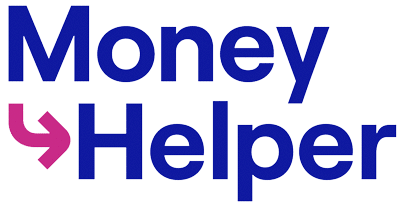
What is a Debt Relief Order?
A Debt Relief Order (DRO) is a debt solution that allows people with debts up to £30,000 (£20,000 in Northern Ireland) and little income or valued assets, to be relieved from their repayments for 12 months. After this time, if they are still unable to repay, their debts are officially written off.
A Debt Relief Order is designed for those living in England, Wales, or Northern Ireland who are unable to repay outstanding debts. It offers an opportunity to take a break from repayments, in the hope that their financial situation improves.
Is a Debt Relief Order right for me?
DROs are designed for people with little or no surplus income or assets they can put towards repaying their debts. DRO applicants typically don’t have their own car or property, or assets worth more than £2,000. They also have a disposable income (after household bills and other necessary payments) of no more than £75 a month.
A DRO can be an alternative to bankruptcy. Once you enter one of these orders, all interest and charges from your creditors are frozen for a period of 12 months. When your DRO comes to an end, there will be a review of your finances. If your situation has improved, you’ll be expected to start making debt repayments again. If it hasn’t improved, your debts will be written off.
When should I consider a Debt Relief Order?
If you have debts up to £30,000 (£20,000 in Northern Ireland) that you feel you can’t pay back and have little to no assets or property of your own to contribute towards repayments, a Debt Relief Order may be a preferable choice to Bankruptcy.
A DRO may be an option if you feel you lack the resources to enter any other debt solution or feel you need space from your current debts.
What debts are included in a Debt Relief Order?
Almost all debts are covered under a Debt Relief Order. These include:
- Credit card
- Overdraft
- Overdue utility bills
- Rent arrears
- Personal loan
- Benefit overpayments
- Council tax
- Telephone and broadband bills
Debt Relief Order Pros & Cons
DRO Pros
- Potential to write off debts
- 12 months respite from your debt repayments
- Creditors cannot contact you during the 12 months
- You don’t need to appear in court
DRO Cons
- You will need to pay a £90 fee
- Not available if you own property
- Your credit rating will be affected
- Only available if you owe less than £30,000 (£20,000 in Northern Ireland)
Applying for a Debt Relief Order
- When you apply for a DRO, you will need to pay a nominal fee of £90 to the Insolvency Service. You can make this payment in increments, but it will need to have been paid in full before your application can be processed. Once put forward, a DRO should take up to 10 working days to be officially reviewed.
- After the initial application, you’ll need to review your financial situation. To whom you owe money, the details of your debts, income, and expenditure will all need to be considered. The sooner you give this information the sooner your application can begin.
- Once you’ve entered a DRO, you will have 12 months free from having to make debt repayments. During this period, all charges and interest are frozen and your creditors can’t contact you. Once this 12 months comes to an end, your finances will be reviewed again. If your finances have improved, you will have to start repaying your debts. If your circumstances remain the same, your debts will be written off.
Am I eligible for a Debt Relief Order?
As a Debt Relief Order is a scheme designed to help people who cannot realistically get out of debt themselves, you will need to meet some qualifying criteria, these include:
- Debts up to £30,000 (£20,000 in Northern Ireland)
- Not owning property
- Not owning a vehicle worth more than £2000
- No assets worth more than £2000
- Less than £75 a month in disposable income
- A resident of England, Wales, or Northern Ireland
- Unable to repay your debts
- No DRO in the last 6 years
- Not currently in any formal insolvency solution (e.g. IVA or Bankruptcy)

“I was amazed at how easy it was to talk to a stranger about my debt.“
— Kevin, Greater London
Read Kevin’s story…
Living with a Debt Relief Order
A Debt Relief Order is recorded on a public register. Once you have entered into one of these orders, you will have some welcome breathing space from your creditors and your debts. You’ll have a 12-month period to try to get ahead of your debts and improve your finances. And if your situation doesn’t improve, at the end of the 12 months, you’ll be free from debts you can’t afford to pay back.
It’s important to be aware that a DRO will have implications in terms of your credit score and your ability to take out future credit agreements.
Can I get a mortgage on a Debt Relief Order?
Getting a mortgage while you’re on a DRO would be a breach of the terms. You would be expected to resume repayments of your existing debts. As with any debt repayment solution, it’s typically advised to wait until your solution has come to an end before you try to access further credit.
Will a Debt Relief Order stop bailiffs?
When you enter a DRO, your creditors must cease any attempts to make contact with you and to chase payments. This includes visits from bailiffs, as well as legal action and any other form of direct contact with you.
If your financial situation has improved after the 12 months of your DRO, your creditors will be permitted to chase repayments again – applying any charges or interest they previously would have added.
Should I apply for a Debt Relief Order?
Whether or not you should apply for a DRO will depend on your specific financial circumstances. As outlined above, this debt solution has strict eligibility criteria, so is not available to everyone.
A DRO might appeal to you because of the prospect of being able to write off debts. However, as with any debt management solution, you should always do your research and due diligence. It’s best to contact an FCA regulated debt advice company, like MoneyPlus Advice, before you make a decision. We offer specialist debt advice and will discuss your options with you.
Alternative Debt Solutions
Protected Trust Deed
Available to residents of Scotland, a Protected Trust Deed is designed to help ease the pressure felt by those facing unmanageable debts. A formal, legally binding debt solution, it combines multiple debts into a single payment each month.
Debt Consolidation Loan
A Debt Consolidation Loan is a new loan you take out to pay off your existing debts. You then make a single monthly payment, rather than multiple payments to different creditors.


To find out more about DROs, and for debt help and information in general, you can read about your options for repaying your debt. You can also access free debt advice at www.moneyhelper.org.uk.

